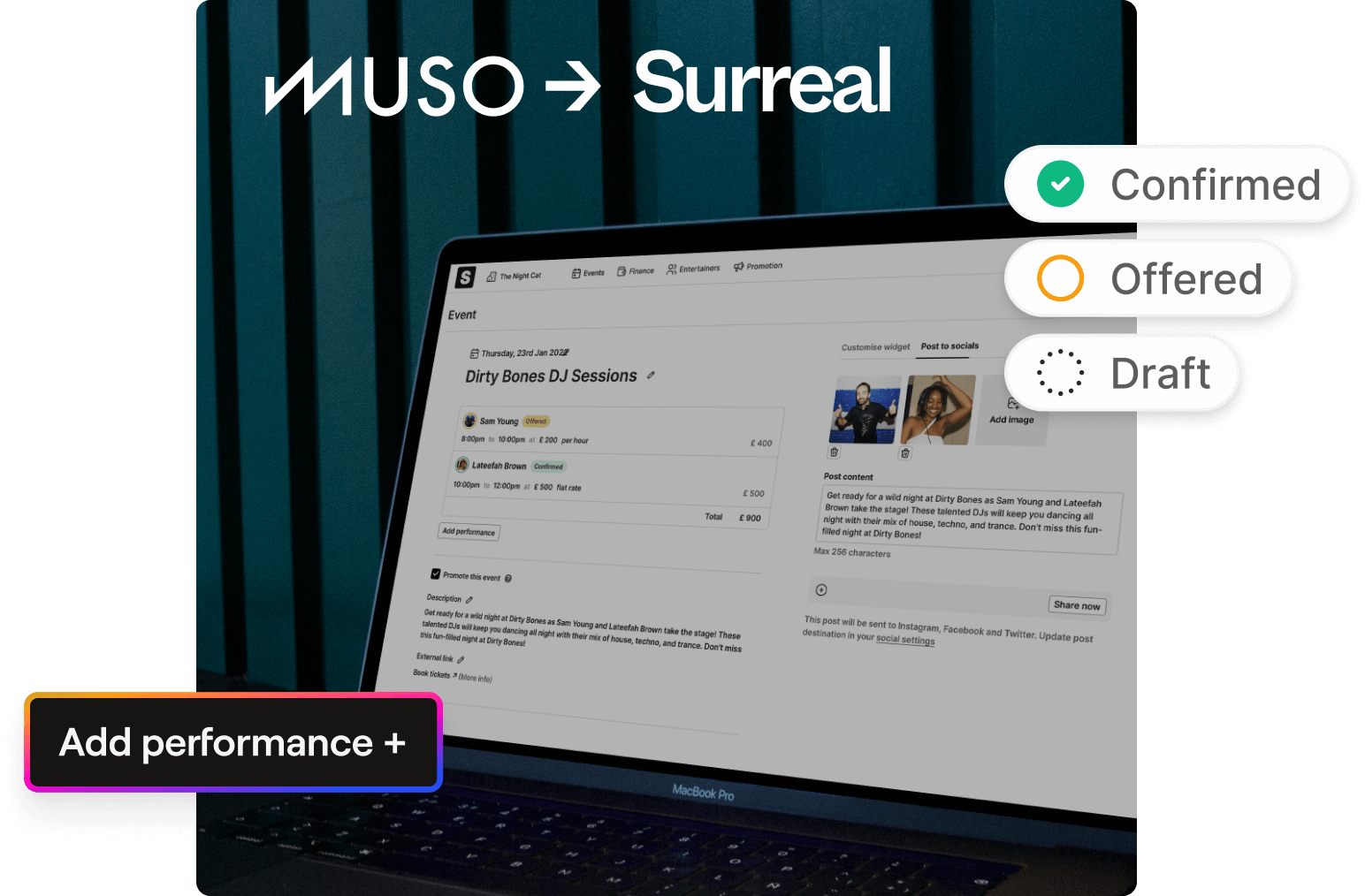All customers have migrated from Muso to Surreal. The last pay run on Muso will occur on the 4th of March.
You can still access Muso for now, however Muso will be shut down for good on March 29th.
Please read the FAQs at the bottom of this page about the migration.
Australian Venue Co. bookings will officially move to Surreal by the 4th of March 2024.
If you are an AVC venue or an artist invited by an AVC venue, please ensure that you are set up on Surreal and all of your bookings after March 4th are on Surreal.
If you are a new venue, entertainer or agent, please sign up to Surreal here.

Can we have a note here about how long these will stay in operation?
By the 4th of March 2024! All you need to do is head to https:// surreal.live and create your entertainer profile.
Muso will be shut down on the 29th of March, and all bookings will need to be on Surreal from the 4th of March. Any previous booking and invoice data should be exported so you can store it safely. We will be storing your data securely in case you ever need it again.
Your gigs won’t be affected! The gigs you have on Muso will still be on Surreal, it’ll just be a better booking process.